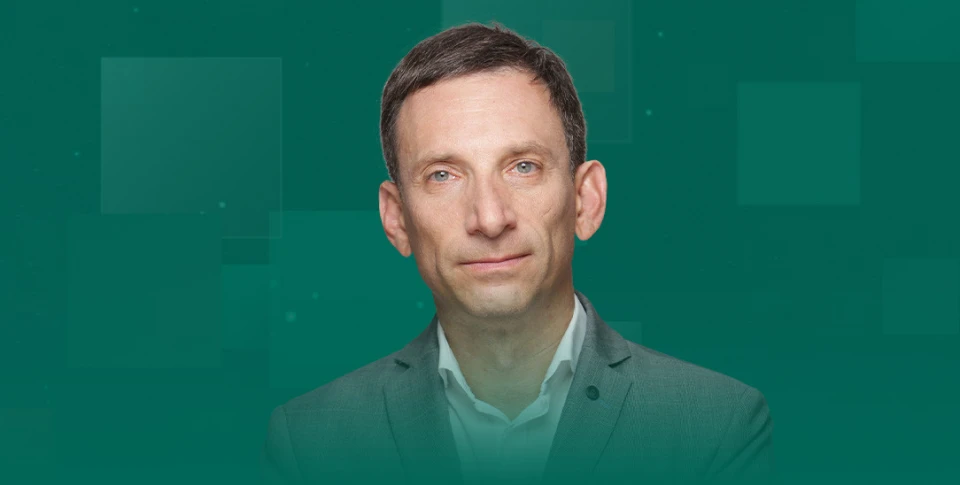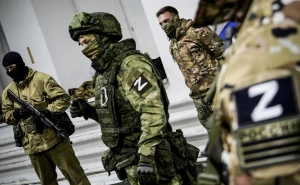
Trump wants to get rid of Zelenskyy
The Economist claims that Donald Trump and his team would like to get rid of the current Ukrainian president, Volodymyr Zelenskyy, whom they consider an inconvenient negotiator
Trump himself seemingly confirms this conclusion by repeatedly making critical remarks about the Ukrainian president over the past few days.
It all started with criticism that Zelenskyy did not accept the format of separate U.S.-Russia negotiations to end the war in Ukraine. This was followed by insults after the Ukrainian president's response. As is known, Donald Trump called Zelenskyy a dictator and an unsuccessful comedian. Now, it has escalated to accusations that Zelenskyy did not sign an agreement on Ukraine’s natural resources, which Trump likely planned to use as a rationale if he decided to continue aiding Ukraine, explaining to his voters why the United States should allocate resources for continued military and financial support to a country fighting Russian aggression.
At the same time, it is clear that Donald Trump’s actions may be driven not only by his dislike of the current Ukrainian president.
This animosity has been a clear fact since Trump's first presidency, when Zelenskyy became one of the key figures in the famous story surrounding the first impeachment of the sitting American president, related to pressure on him regarding the Trump administration's desire to investigate matters directly involving the presidential candidate and future election winner, Joseph Biden.
Now, the war between Russia and Ukraine itself may be perceived by Trump as an unwelcome development, considering his desire to restore relations with the Kremlin within the framework of the utopian idea of destroying the Russian-Chinese strategic alliance. However, this is quite a complex motivation behind the aggressive rhetoric that Zelenskyy faced after the Russian-American negotiations. It is important to remember that before these negotiations, such rhetoric did not exist. But the attitude towards Zelenskyy, clearly, was not sufficiently positive even back then.
So, let's be realistic. After the meeting between the Russian and American delegations in Riyadh, Donald Trump became convinced that his idea of forcing Vladimir Putin to agree to a ceasefire, with the aim of subsequently involving him in a long-term negotiation process that could last throughout Trump's entire term, had failed. During their first phone conversation, Putin ignored the American president's proposal to cease fire on the Russian-Ukrainian front. Unlike his ambitious American counterpart, the Russian leader has a completely different plan for how Russian-American relations should evolve.
Putin is not opposed to negotiations on ending the Russian-Ukrainian war. However, he would prefer these negotiations to take place amid ongoing military actions on the Russian-Ukrainian front and not interfere with his continuation of massive shelling of Ukrainian territory, destroying civilian infrastructure, and killing civilians.
Moreover, Putin would like his contacts with Donald Trump to continue precisely against the backdrop of these new crimes. He needs the hands of the American president and his closest allies to be stained with the blood of Ukrainians. And he wants the United States to become Russia's ally simply because, with such a reputation, they will have nowhere to go in the civilized world. The goal is not to destroy the strategic alliance between Russia and China, but to ensure that the United States under Trump becomes the junior partner in that alliance.
This is certainly not part of the American president’s plan, who thought it would be easy to convince the Russian leader that it is necessary to cease fire, change the Ukrainian government through elections during the ceasefire, and then start negotiations.
Trump may understand that these negotiations will lead nowhere, but it’s important to him that no new military actions between Russia and Ukraine begin during his time in the White House. A major war that could start after his political career doesn’t concern Trump much. He will be able to say that during his presidency, active military actions didn’t occur. And then repeat his iconic statement: "If I were president, that war would have never happened." That’s practically all that interests Trump in the situation with the Russian-Ukrainian war.
But what to do when it comes to a true political failure and the realization that Putin cannot be easily outplayed? One must find someone to blame, as the ambitious American president has never admitted his own mistakes. Now, a decision has been made to make Ukrainian President Volodymyr Zelenskyy the scapegoat for the failure of Donald Trump's utterly unrealistic mission. And if you add to this Trump's personal animosity toward Zelenskyy, everything falls into place. The goals and objectives of the American president become clear.
What remains unclear is how Trump will continue to build relations with the Russian Federation, whose leadership openly mocks him and effectively torpedoes any initiatives that could portray the American president as a peacemaker.
After all, one can criticize Zelenskyy as much as they want, call him a dictator, accuse the Ukrainian president of not appreciating U.S. help, talk about his authoritarian ambitions, and demand elections in Ukraine. All of this is understandable and, I would say, already a classic.
But what to do with Vladimir Putin, if he refuses Donald Trump's proposals and believes that the American president should ultimately agree to all of Russia's maximalist conditions for ending the war? Conditions that not only foresee the absorption of Ukraine by Russia, but also the transformation of the Russian Federation into a true political, and possibly economic, future hegemon of Europe.
About the author. Vitaly Portnikov, journalist, laureate of the National Shevchenko Prize of Ukraine.
The editorial team does not always share the opinions expressed by blog or column authors.
- News











































